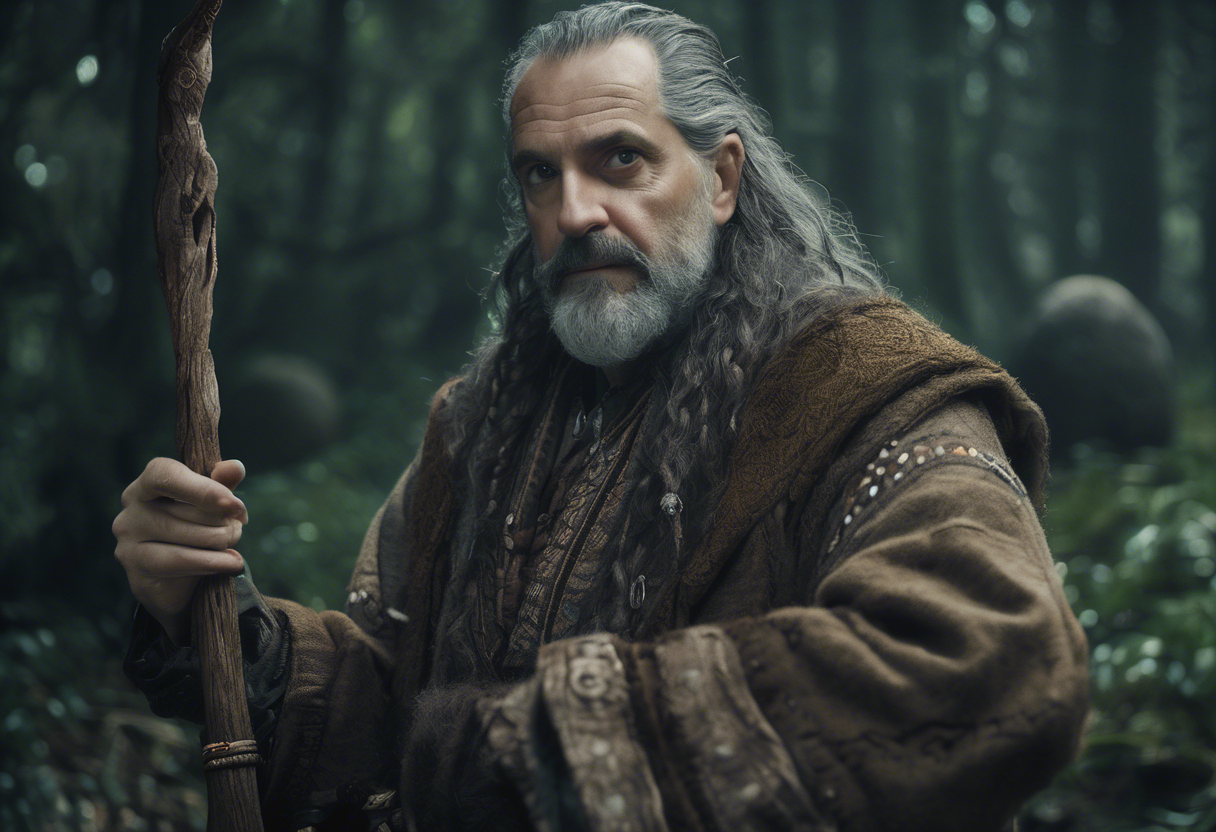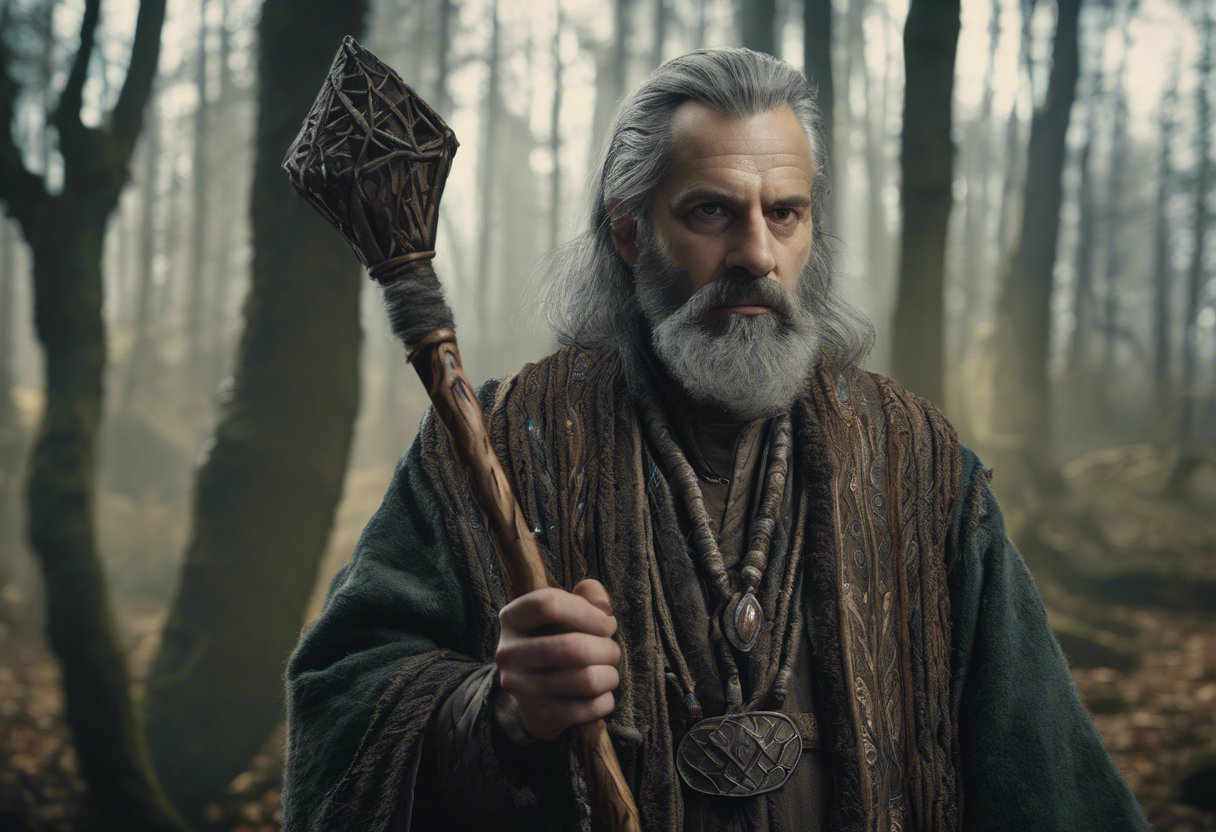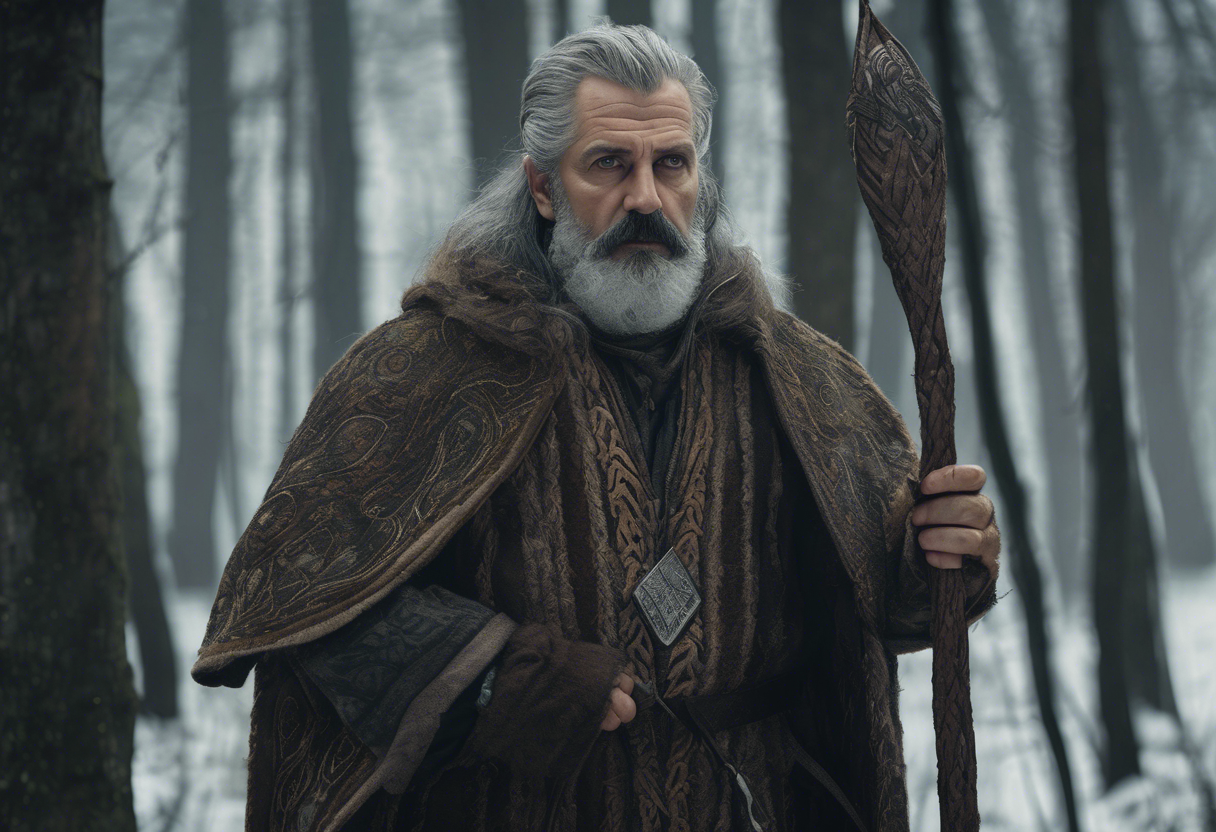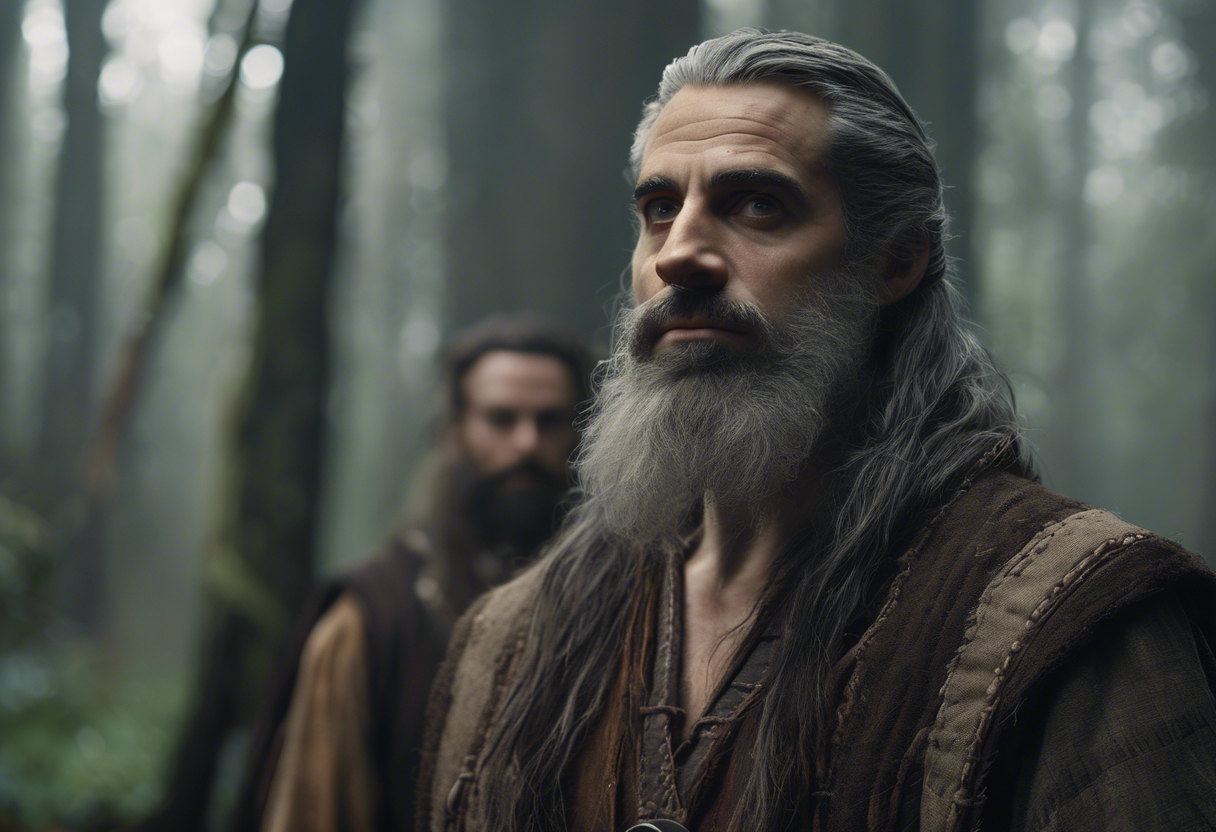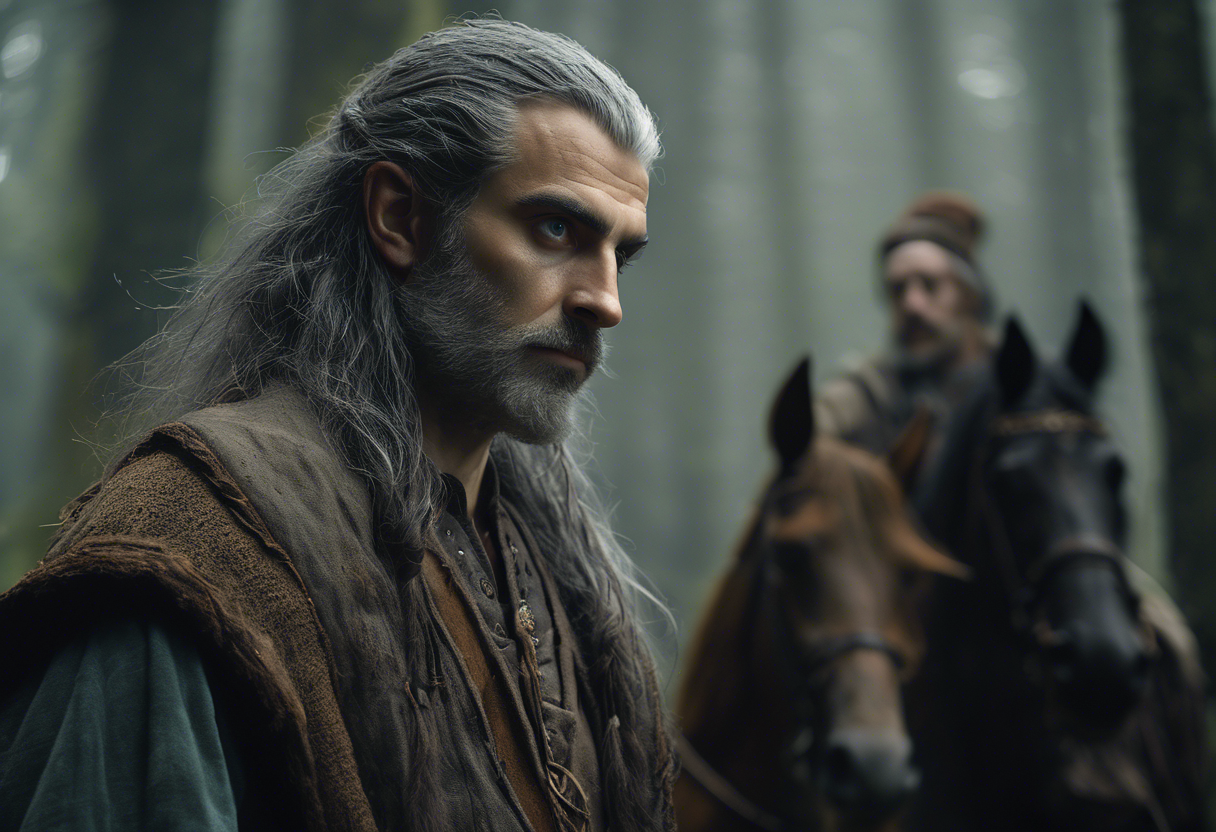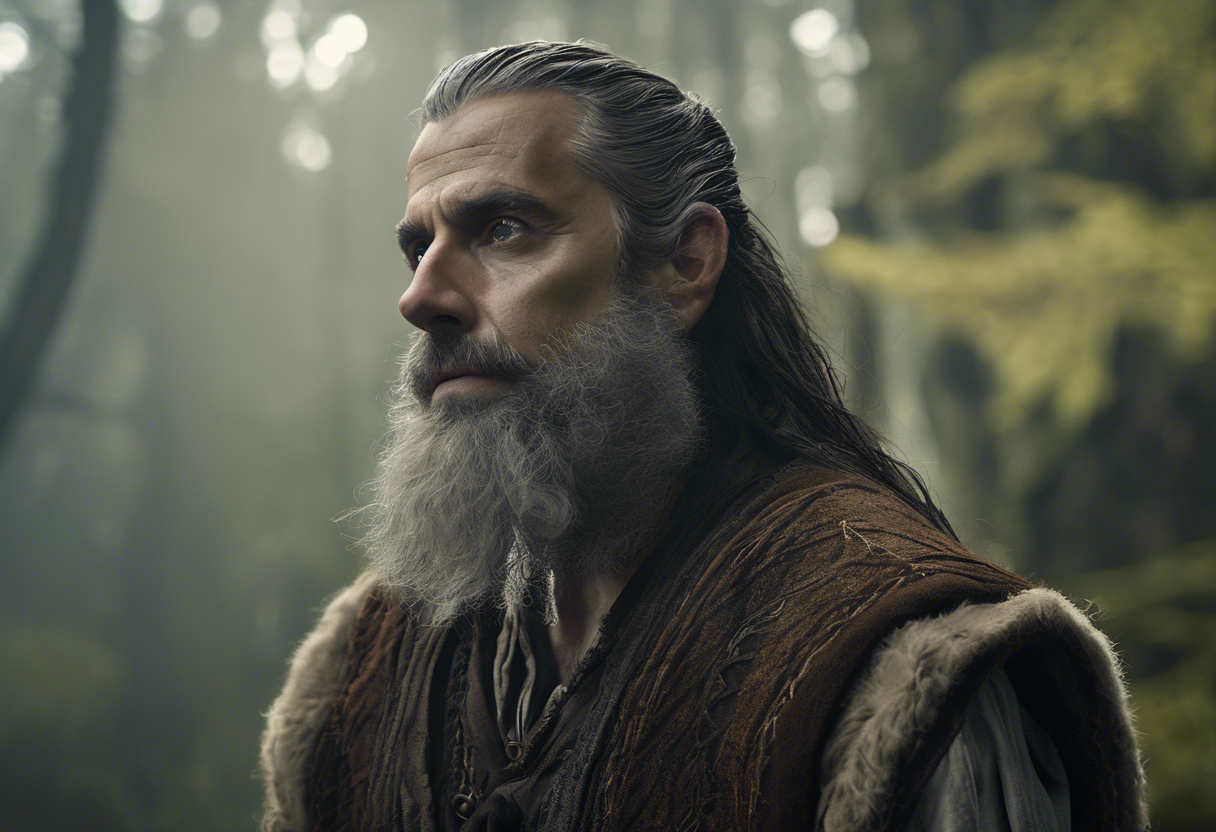Contents
Mousesack from The Witcher Netflix Series
Introduction
Mousesack, also known as Ermion in the context of Skellige, is a significant character in the Netflix series adaptation of Andrzej Sapkowski’s The Witcher. He is a druid from the islands of Skellige, a sovereign kingdom known for its expert seafarers and strong connection to nature and magic. Mousesack’s role in the series is multifaceted, involving his duties as an advisor to Queen Calanthe of Cintra, his friendship with Geralt of Rivia, and his pivotal involvement in the early life of Ciri, the central figure of the series.
Mousesack’s origins are rooted in the druidic traditions of Skellige, where he is a ranking member of the Circle of Druids. This background sets him apart from other magical practitioners in the series, such as the sorcerers trained by the Brotherhood of Sorcerers. His connection to Skellige and his long-lived nature, common among magic-users in the Witcher universe, add depth to his character and highlight his unique perspective on the world [3].
Role in the Series
In the Netflix series, Mousesack is introduced as a trusted advisor to Queen Calanthe of Cintra. He is tasked with protecting Princess Ciri and ensuring her safety during the tumultuous events leading up to and following the Slaughter of Cintra. Mousesack’s storyline is intertwined with Geralt’s, as he helps raise Ciri and later argues with Geralt about his responsibility to Ciri under the Law of Surprise. This argument, though it occurs within Cintra in the Netflix adaptation, underscores the complex relationships and destinies that bind these characters together [3].
Mousesack’s journey takes a tragic turn when Cintra is attacked by Nilfgaard. Unlike in the book series where he survives the Slaughter of Cintra and returns to Skellige, in the Netflix series, Mousesack meets a tragic end. He is tracked down by Cahir, handed over to a doppler, and killed, allowing the doppler to assume his identity and continue the pursuit of Ciri [2].
Character Analysis
Mousesack is portrayed as a wise, intelligent, and compassionate character. His wisdom and magical abilities make him a valuable ally and advisor, not just to Queen Calanthe but also to Geralt and Ciri. His relationship with Geralt is built on mutual respect and a deep understanding of each other’s roles in the world. Mousesack’s sassy and wise demeanor, as depicted by Adam Levy, adds a layer of complexity to his character, making him both relatable and compelling to audiences [3].
One of Mousesack’s greatest strengths is his unwavering commitment to those he cares about. He risks his life to protect Ciri, demonstrating a selflessness that is admirable and poignant. However, his death in the series also highlights his vulnerability and the high stakes of the world in which he lives.
Themes and Symbolism
Mousesack embodies several key themes in The Witcher series. His connection to nature and the druidic traditions of Skellige symbolize the importance of balance and harmony with the natural world. This theme is particularly relevant in a series where the exploitation of magical powers and the destruction of natural habitats are recurring issues.
Mousesack also represents the theme of mentorship and protection. His role in helping to raise Ciri and advising Geralt underscores the importance of guidance and responsibility in the face of destiny and danger. His tragic death serves as a reminder of the sacrifices that characters must make to protect others and the world they live in [3].
Cultural Impact
Mousesack’s character has had a significant impact on fans of the series, despite his relatively short time on screen. His portrayal by Adam Levy was well-received, and his death was seen as a tragic and pivotal moment in the series. The deviation from the book series, where Mousesack survives, was noted by fans and critics, highlighting the challenges of adapting complex literary works for the screen [2].
In terms of cultural significance, Mousesack’s character contributes to the broader discussion on the portrayal of druids and nature-based magic in fantasy media. His depiction challenges the typical stereotypes of druids as mere "tree huggers" and instead presents a nuanced and powerful magical practitioner.
Critical Reception
The reception of Mousesack’s character has been generally positive, with praise for Adam Levy’s performance and the character’s overall impact on the narrative. However, the decision to kill off Mousesack in the first season was met with some criticism from fans who were familiar with the book series. This change was seen as one of the significant deviations from the source material, which has been a point of contention for some viewers [2].
Critics have noted that Mousesack’s death adds a layer of realism and stakes to the series, making the world feel more dangerous and unpredictable. However, it also means that the character’s potential for further development and interaction with other characters was cut short.
Legacy
Mousesack’s legacy in The Witcher series is one of sacrifice and wisdom. His character serves as a reminder of the importance of protecting those who are vulnerable and the high stakes involved in the world of the Continent. Despite his short time in the series, Mousesack’s impact on the narrative and the characters around him is significant.
His portrayal also leaves a lasting impression on the audience, highlighting the complexities of character development and the challenges of adapting literary works for different media. Mousesack’s character continues to be a topic of discussion among fans and critics, reflecting his enduring appeal and the depth he brings to the Witcher universe.
References
- https://en.wikipedia.org/wiki/List_of_characters_in_The_Witcher_series
- https://screenrant.com/witcher-characters-supposed-to-be-alive-show/
- https://www.looper.com/242543/the-untold-truth-of-mousesack-from-the-witcher/
- https://collider.com/witcher-cast-characters/
- https://gamerant.com/witcher-netflix-game-characters-different-look-compared/

